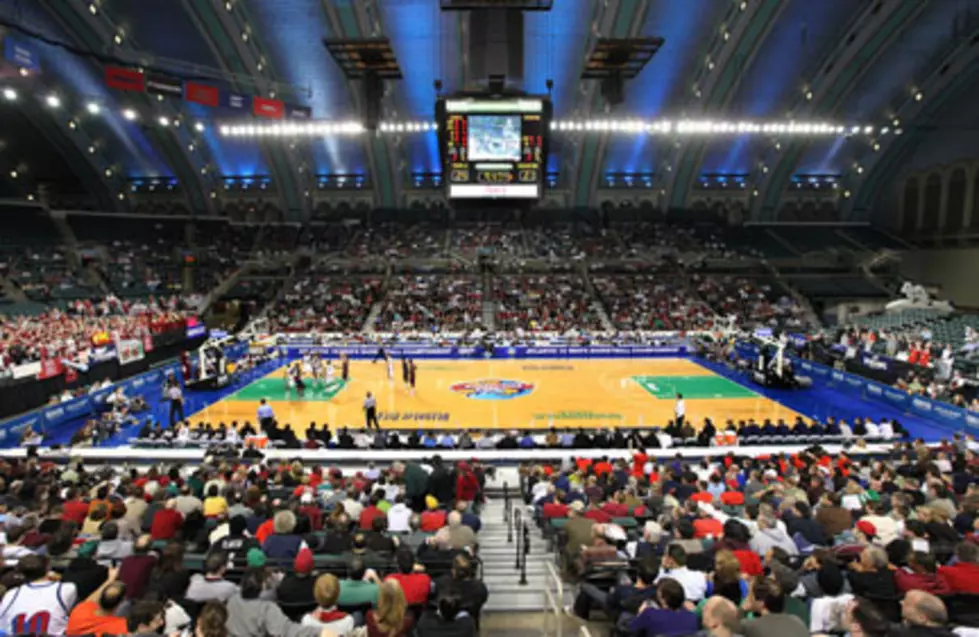
Those are some pipes: Immense organ’s restoration underway
It's described as the largest musical instrument in the world, yet an audience can barely see it.
The historic organ at Boardwalk Hall in Atlantic City boasts more than 33,000 pipes, all concealed behind the walls of the cavernous auditorium best known for hosting the Miss America pageant. But the sound is robust -- even while operating at only 25 percent of its capacity.
"I tell people it's sort of like a race car running on two cylinders right now," said staff organist Steven Ball. "It's also terrifying how powerful it is -- even just a quarter of it. So I can't imagine what half of it is going to do."
He hopes to find out soon. The nonprofit Historic Organ Restoration Committee, which has been refurbishing the hidden gem, plans to have it functioning at 50 percent by the summer, when hundreds of organ aficionados expect to visit.
The 150-ton instrument, built by the Midmer-Losh Co., hasn't been fully operational since 1944, when the Great Atlantic Hurricane swept through the seaside resort, causing flooding that ruined mechanical equipment.
But for 12 years before the storm, the organ's unequaled power and tonal range represented the pinnacle of the art form, Ball said. Unfortunately, no recordings exist from that time -- only written accounts that he said describe "the most impressive sound on Earth."
The organ was never completely repaired, according to Ball. It was played sporadically until the 1970s, when, he said, it largely fell silent because of electrical problems. Deterioration ensued due to neglect, disuse and accidental pipe damage caused by contractors working in the hall.
Yet over the past several years, the restoration committee's painstaking efforts have partially revived the instrument. Now Ball, who also serves on the group, is trumpeting its 10-year funding campaign, which so far has raised $2 million of its $16 million goal.
The money will help refurbish the Midmer-Losh -- which is currently played during Miss America, on building tours and at other hall events -- and a smaller W.W. Kimball organ in an adjacent ballroom.
Beth Ryan, coordinator at the Atlantic City Historical Museum, said she was blown away when she first heard the main organ.
"The air around me got very electric -- the sound just filled the room," Ryan said. "It's like a time machine. It really does transport you back into a different era."
Organs used to be essential equipment for large theaters and municipal auditoriums, providing soundtracks for stage shows and movies in a world before amplifiers.
Ball described organists as one-man orchestras, creating music from a range of sounds -- trumpets, strings, piano -- in the same way an artist mixes paint on a palette. The sound palette built at Boardwalk Hall remains unparalleled because of its stellar cohort of designers, he said.
James Weaver, executive director of the Organ Historical Society, said his group is excited to see the instrument's inner workings during a planned visit July 1.
"It's like going into an old steamship or something," Weaver said. "You just marvel ... how did they even manage to do all of this?"
So far, restoration funds have included private donations, as well as federal and state grants. Hundreds of pipes were recently sent to be overhauled at Oyster Pipe Works in Louisville, Ohio, and workers in-house have been replacing critical mechanical elements.
Some organ fans fear Atlantic City's economic struggles -- including several casinos closing in recent years -- have hampered their ability to attract widespread attention and support.
Ball hopes people will see the bigger picture. The former University of Michigan music professor insists the mammoth project is not simply a nostalgic quest to fix "an antiquated piece of sound equipment."
When fully functional, he said, the organ will be "truly capable of changing the public's perception of what the art means."
Former church organist Nancy Herb of Hatfield, Pennsylvania, heard Ball play a 30-minute recital after taking a recent behind-the-scenes tour.
"It's just fantastic, all the intricacies of it," Herb said. "You feel like you're in heaven -- heavenly music."
(© 2015 The Associated Press. All rights reserved. This material may not be published, broadcast, rewritten or redistributed)
More From New Jersey 101.5 FM









